Deckplate Fundamentals Qualification – 5Day
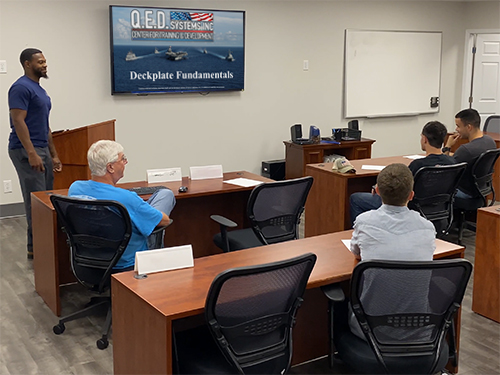
COURSE LENGTH: 5 DAYS (40 HOURS)
COURSE LOCATIONS: Norfolk VA, National City CA
The purpose of this course is to train students on the components which are part of a mechanical, electrical, or structural system.
Students will be taught the standards of mechanical, electrical, and structural systems so that inspections are completed with the basic understanding of ship requirements to accomplish a ship repair.
Students will learn in the classroom and use shipboard mock ups for practical exercises.
COURSE OBJECTIVES
REFERENCES
- S9086-RK-STM-010, NSTM Chapter 505 Piping Systems
- S9086-RK-STM-010, NSTM Chapter 504 Measuring Instruments
- S9086-RH-STM-010, NSTM Chapter 503 Pumps
- OSHA Standards, Maritime ( 29 CFR 1915, 1917, 1918 )
- NSTM 300
FUNCTIONS – Deckplate Fundamentals for mechanical, electrical, and structural ship repairs are used to teach the knowledge required for an individual to comprehend the basic understanding of ship requirements to accomplish a ship repair. Students are taught the different components, test requirements, non-destructive test requirements, and welding types. Students are given a guide and examples to follow along with instructor at their desk. Students are given hands on training at QED shipboard mockups for practical exercises.
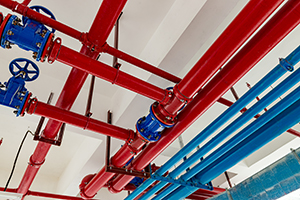
PIPE SYSTEM IDENTIFICATION
This lesson provides an understanding of piping system identification and markings. The purpose of labeling piping systems is to provide valve and piping identification for systems operation, isolation, and troubleshooting. The ability to identify piping systems is crucial to the operation and maintenance of the engineering plant.
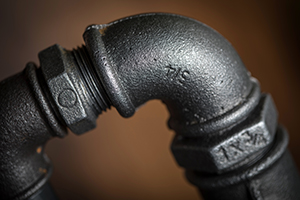
JOINT FABRICATION
Fabrication methods of mechanical systems are complex processes. The student will learn an overview of braze joint designs, weld joint designs, and mechanical joint designs which will further the students abilities on understanding how mechanical systems execute work.
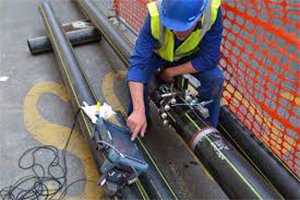
PIPE TESTING
This lesson will provide students with the fundamental information required to understand the NAVSEA standards for ships pipe testing.
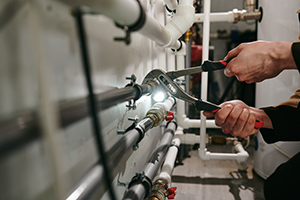
STRUCTURAL JOINT FABRICATION
This lesson will provide students with the fundamental information required to understand the NAVSEA standards for ships construction.
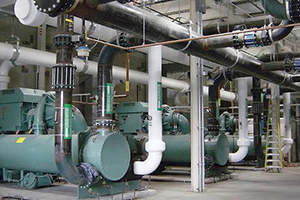
CHILLED WATER SYSTEMS
This lesson provides the student with a basic understanding of a chill water system aboard US Navy Ships.

ELECTRICAL
This lesson will provide the student with an understanding of working on or near sources of electricity and the associated hazards and how to mitigate them.
Duties and Responsibilities
Mechnical system identification – Explain and show the methods for identifying systems
Major Components – Define types of pumps, pipe, valves, heat exchangers,
Minor Components – Define expansion joints, filters/ strainers, gages, thermometers.
System cleanliness – Explain and demonstrate foreign material exclusion (FME), and flushing process.
Job Interferences – Explain ship interferences and reporting issues
Mechanical joint fabrication – Show the joint types in the classroom by using examples obtained from the ship.
Types of mechanical pipe testing – Teach the types of pipe testing, test rig inspection, pretest inspection, hydro test
Introduction to Electricity – Identify the fundamental Basics of Electricity
Electrical Safety – Identify proper electrical safety procedures and personal protective equipment.
Electrical Measuring Devices – Identify electrical meters used to obtain electrical readings. ie, Voltage, Amperage and Resistance
Instructor Responsibilities – This position has no supervisory responsibilities
Reporting Relationship – Will report to assigned supervisor
Qualifications – None
Working Conditions – Classroom and Mock-ups used.
NEXT COURSE DATES
Month Dates, 2023 – Month Dates, 2023
